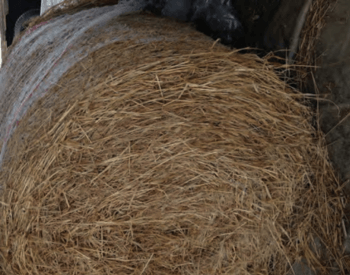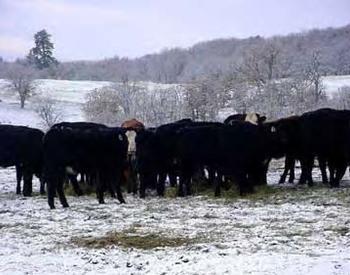Mineral Requirements of Sheep
| Nutrient | Requirement |
|---|---|
| Sodium | 0.09-0.18 |
| Chlorine | — |
| Calcium | 0.20-0.82 |
| Phosphorus | 0.16-0.38 |
| Magnesium | 0.12-0.18 |
| Potassium | 0.50-0.80 |
| Sulfur | 0.14-0.26 |
| Nutrient | Requirement | Maximum Tolerable Level |
|---|---|---|
| Iodine | 0.10-0.80a | 50 |
| Iron | 30-50 | 500 |
| Copper | 7-11b | 25c |
| Molybdenum | 0.5 | 10c |
| Cobalt | 0.1-0.2 | 10 |
| Manganese | 20-40 | 1,000 |
| Zinc | 20-33 | 750 |
| Selenium | 0.1-0.2 | 2 |
| Fluorine | — | 60-150 |
aHigh level for pregnancy and lactation in diets not containing goitrogens; should be increased if diets contain goitrogens.
bRequirement when dietary Mo concentrations are ‹1 mg/kg DM. See text for requirements under other circumstances.
cLower levels may be toxic under some circumstances. See text.
Source: Nutrient Requirements of Sheep, Sixth Revised Edition, (1985)
Mineral Requirements of Goats
The National Research Council has publications available on the mineral requirements for goats:
- Nutrient Requirements of Small Ruminants: Sheep, Goats, Cervids, and New World Camelids (2007).
- Nutrient Requirements of Goats: Angora, Dairy, and Meat Goats in Temperate and Tropical Countries (1981).
Contents of the book are available free on-line. The book only lists calcium and phosphorus values in the tables. Other minerals are mainly based on sheep and cattle values. There is some discussion on individual minerals.
Lastly, you can use mineral requirements of sheep as a guideline.
















